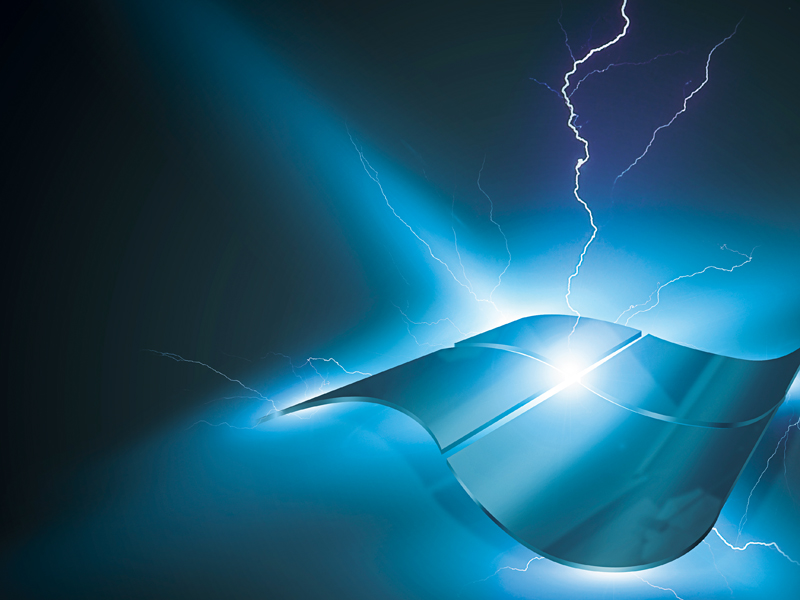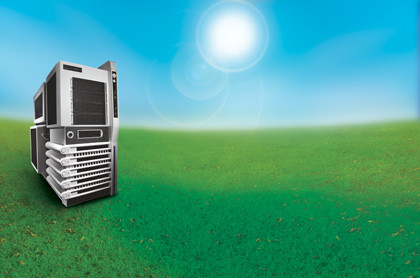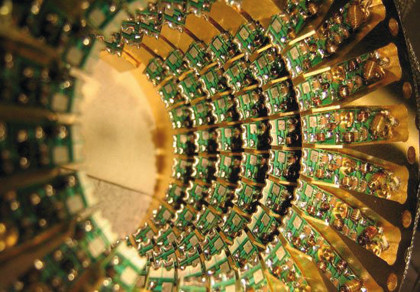Future shock: the next decade in computing
The next 10 years in tech: two scenarios explored

Sign up for breaking news, reviews, opinion, top tech deals, and more.
You are now subscribed
Your newsletter sign-up was successful
Almost nine years ago, I wrote about the next decade of the PC.
I predicted dual-core processors, no more CRT monitors or cables, solid-state drives, plug-and-play networking and the end of the PCI bus. I was right about all those.
We still have cables and spinning hard disks in a lot of computers of course, but it's a fighting retreat, nothing more.
I predicted a integrated PC with RAM, storage, networking, sound, video and processor, all built onto a single motherboard. The Raspberry Pi is a $25 system that will run Linux on a credit-card-sized circuit board, and you can buy it right now, so I was right about that too.
But I also predicted four things that didn't happen: a modular PC built from blocks like Lego, handwriting recognition replacing typing, a Google image search that doesn't rely on keywords, and computers that we use with the screen flat on the desk, like a piece of paper.
I predicted these things because I wanted them to happen and I hoped that predicting them loudly would help to bring them about.
I also didn't predict lots of things that have happened: the rise of iOS and the app, the way social networking takes up so much of our time, and World of Warcraft. I didn't see those, because imagining a whole new thing is much harder than extrapolating a trend.
Sign up for breaking news, reviews, opinion, top tech deals, and more.
I could argue that some of the things I predicted just haven't happened yet, but this would be disingenuous. My strike rate is 50 per cent, at best.
So why should my next set of predictions be any more accurate? They probably won't be. Making specific, testable predictions is always a risky business.
But I can improve my odds slightly with an each-way bet, so let's consider two alternative futures: one bright, one bleak.
Human ingenuity guarantees that the this tale of two cities will be exciting in both of them, but the path that progress takes in each could be startlingly different…
The shiny Utopia

You want to know what your PC will look like in ten years' time? I'll tell you: in ten years' time you won't have a PC.
Even now, if you have a desktop PC, it's only for one of two reasons: either you're too poor or you're too rich. Everyone else in the middle-income bracket has a gaming laptop now.
If you're too poor to afford one of those, your desktop is a compromise machine. It's a way of getting acceptable frame rates in an affordable, ugly box.
At the top of the pay scale, your laptop is an expensive slice of titanium to make PowerPoint slides on, and at home you have a money-no-object, seething beast with watercooling and lots of unnecessary LED lights, on which you play games at the same frame rates as everyone else.
These ecological niches are shrinking. The desktop PC is just a games console. Everything else it can do, you already have on your phone or your TV. It's an expensive console that requires expert knowledge to use and maintain.
The laptop is just a heavy netbook or tablet with rubbish battery life. In ten years' time, you will have an actual console and an actual netbook and nothing else. Neither of these devices will run Windows. You won't miss it one bit. For one thing, you'll be too busy playing games.
Within the next ten years we will finally cross the Uncanny Valley. Pre-rendered sequences used in animated movies reached the point of being arbitrarily close to real people with The Adventures of Tintin, but the next step is to do this on the fly, in a game engine.
You might think that Heavy Rain or Battlefield 3 were realistic, but you still mean realistic for a game. Breaching the Uncanny Valley means that characters in games will be literally indistinguishable from a video sequence of a live actor.
When that day arrives, the strangest thing will be how little difference it makes. Those Brobdingnagian levels of graphical processing will have finally managed to make the graphics invisible. You don't look at real people and marvel at their skin texture, you just take their appearance for granted.
How the PC…

The reason we still play games on a PC now is itself due to a historical oddity. PCs have a keyboard and mouse, and that makes certain kinds of games much easier to play. Those games only evolved because we were all using PCs. That keyboard will stay, but the mouse is on the way out.
On netbooks, it will be replaced with touchscreens. A netbook will essentially become just a tablet with a keyboard built into a clamshell case.
Consoles will also use touchscreens. Not the TV screen though; that would be highly inconvenient. Instead you'll use the touchscreen on your tablet, netbook or phone. It will sit on your lap to give you keyboard and trackpad functions in one, as well as an extra screen for easy-to-read status information, maps and inventory management.
The Wii U is already doing this with a dedicated touchscreen controller, but there is no reason for console and controller to be sold together. Bluetooth communication is perfectly capable of sharing your key presses and finger gestures from any device, and a simple app will handle the status display.
If it sounds too expensive to buy an iPad just to play on your console, just remember that this is instead of owning a whole other PC. You'll actually save money. Inside the box, your console will actually be a powerful PC, much as your Xbox 360 is now. You just won't ever find yourself lifting the lid to look.
Hard disks will be long gone. A combination of cloud storage and flash RAM will give you a box that starts up in five seconds and doesn't complain if you yank the power cord out accidentally. You won't find this especially impressive because you have already long been used to this behaviour from your other set-top boxes.
But behind the scenes, drivers will be automatically updating, files and save points will be backing up to multiple locations and security patches will be installing.
Various criminals, terrorists and delinquents will still find ways of hacking and infecting your console of course (I'm not rash enough to predict the end of cybercrime) but it will be much less of a problem. Remember how spam emails used to be a ubiquitous scourge? Then Hotmail and Gmail improved their filtering to some invisible threshold and the problem just sort of melted away.
The same thing is going to happen with viruses and trojans. The end of the PC means we will all do a lot less fiddling than we used to. With the operating system embedded and self-updating, there just isn't the same scope for idle hands to download dubious files. Take the idiot out of the driving seat and you don't hit nearly as many lampposts.
…Will disappear
Does this sound like an Orwellian police state? It's not. It's the consumerisation of technology. You are the last generation that will be expected – or able – to fix your PC. New inventions always begin as hobbyist toys, and then the case gets sealed shut with tamper-evident screws.
The utopian vision of the PC is that it disappears entirely from our conscious perception. The device is just part of your house, like central heating. The games are just another kind of TV programme, with an audience participation mechanism that's a little more complicated than texting in your vote.
- 1
- 2
Current page: Future computing: The shiny Utopia
Next Page Future computing: The zombie apocalypse